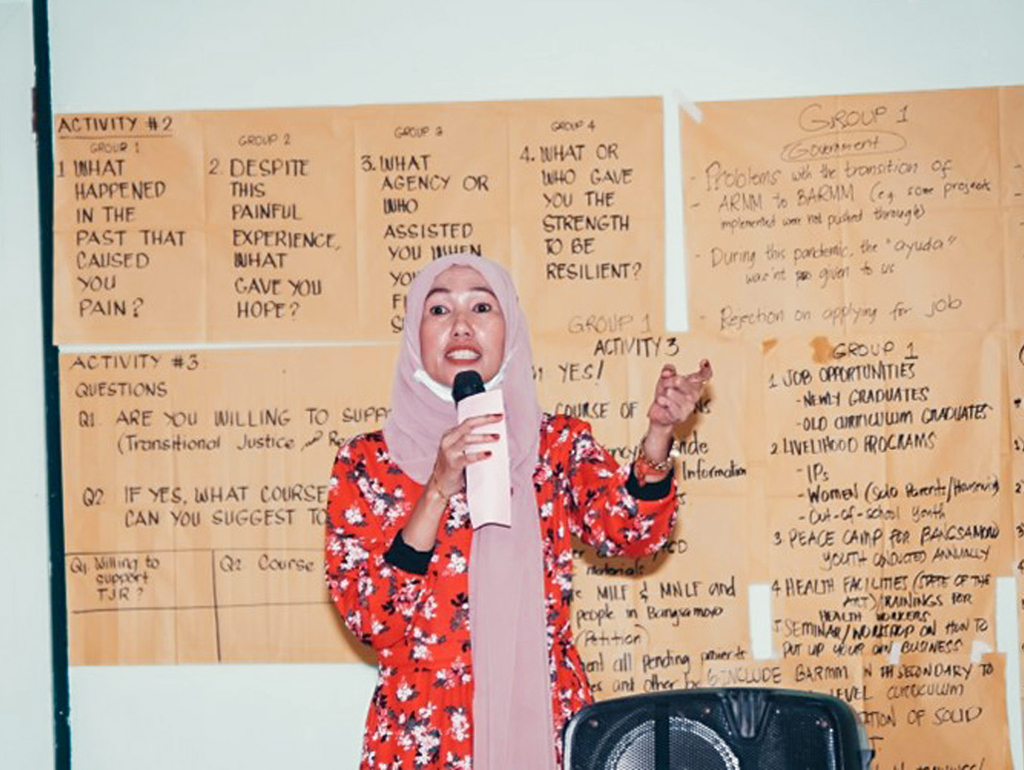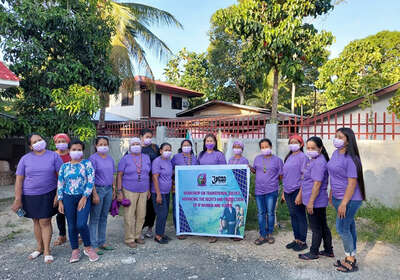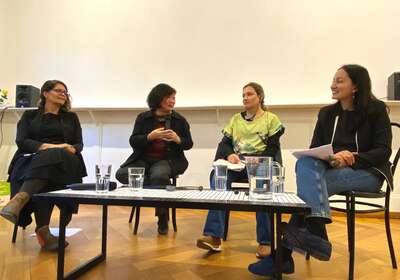The ongoing phase of establishing the Bangsamoro Autonomous Region for Muslim Mindanao has been in progress since 2014. It is a crucial moment for Muslim, indigenous and Christian women to define their demands for a gender-equitable society and anchor them in the new government structures.
We have been working with the Gaston Z. Ortigas Peace Institute (GZOPI) since 2003 and the launch of the “1000 Women for the 2005 Nobel Peace Prize” initiative. GZOPI began organising local Women's Peace Tables in Mindanao in 2015. Parliamentarians and experts in transitional justice also took part, but the main participants were women from the conflict-affected region.
Women affected by the conflict and involved in civil society organisations working for peace, human rights and development took part in the meetings, which often lasted several days. The participants discussed the violence they had experienced during the conflict, attended workshops on how to use the transitional justice mechanisms for conflict transformation as set out in the peace agreement, and developed advocacy strategies. Key figures from the government and administration as well as the media were invited to ensure that the women's concerns reached decision-makers. Some of the meetings also included public forums and awareness-raising events.
Strengthening intergenerational participation
We are working with GZOPI to ensure that women play an active role in conflict transformation and peacebuilding through local and national meetings, congresses and advocacy activities, thus helping to shape a gender-equal and sustainable peace.
Since 2025, the programme has been working with GZOPI to strengthen intergenerational cooperation between women and women's organisations to maintain peace. Targeted lobbying with decision-makers aims to achieve an inclusive implementation of the Bangsamoro Peace Agreement that reflects the needs and experiences of women from different generations.
An important component of the programme is the exchange of knowledge between the partners in the Philippines, Colombia and Nepal. This began in 2019 with an initial face-to-face meeting and culminated in 2021 with the joint development of the publication “From transition to transformation: strengthening women's effective participation in peacebuilding and transitional justice processes”. We will continue this exchange of knowledge in our programme work with GZOPI as well as in the Feminists Connecting for Peace network.


